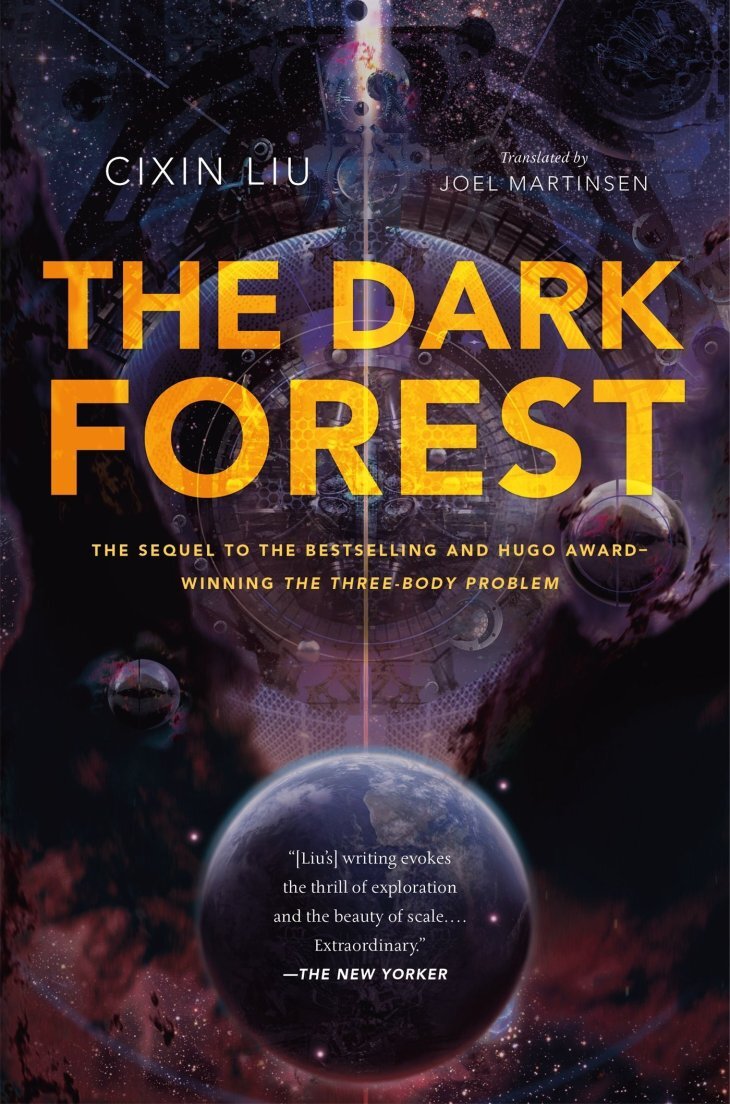Liu Cixin's Three Body Problem Trilogy reminds me of the Foundation series by Isaac Asimov. Both tell stories massive in scope, where the focus is less on the arc of an dividual character than that of the universe itself. Each tells a continuous story over a long span of time, with a new central character for each installment, while the characters who set the initial story in motion—Ye Wenjie in The Three Body Problem and Hari Seldon in Foundation—loom large in the mythos but are never much more than background characters.
In Death's End, the main character is Cheng Xin, a physicist from the common era who plays a critical role in the shaping of the Human-Trisolarin conflict. The story picks up after Luo Ji's discovery of Dark Forest Deterence, wherein a message identifying the location of the Trisolarin and Human solar systems is used to leverage mutually ensured destruction and stave off war. Cheng Xin is nominated Swordholder to succeed Luo Jito, meaning decision that in the event of a Trisolarin attack she will bear the ultimate decision to initiate the message and doom both worlds. The Trisolarins call her bluff, and her failure to act results in humanity's enslavement.
From there, the book takes a series of odd and fascinating turns. Rather than turning into a rebels versus empire tale of conflict, it explores a vast range of philosophical and scientific principles, carrying Cheng Xin across a sweep of time and space that dwarfs the not inconsiderable scope of the previous two books.
One of the most unusual aspects of Death's End is its tone. The other two books were contemplative in their own right, favoring reflection over action, but increasingly the story becomes in a away a meditation on it’s own smallness. I was struck by its melancholy, an emotion I don’t see reflected very often in literature. Tragedy is used a lot, but tragedy is grand and operatic. Melancholy is small and quiet and sad. In this sense, the latter half of Death’s End reminded me more than naything of Nevil Shute’s On the Beach. As in Shute’s novel, the characters in Death’s End face an apocalypse—indeed, one on a much larger scale than the one featured in On the Beach —with more resignation than anguish. There is grief, to be sure, but it’s grief of a muted, elegaic sort. It’s a bold stylistic choice to end a three-part epic, but I think it was the right one. Liu’s work has always felt like classic sci-fi, which dwelt more in the realm of ideas than characters, and the detached way in which it depict’s humanity’s end and potential new beginning seems apt.


